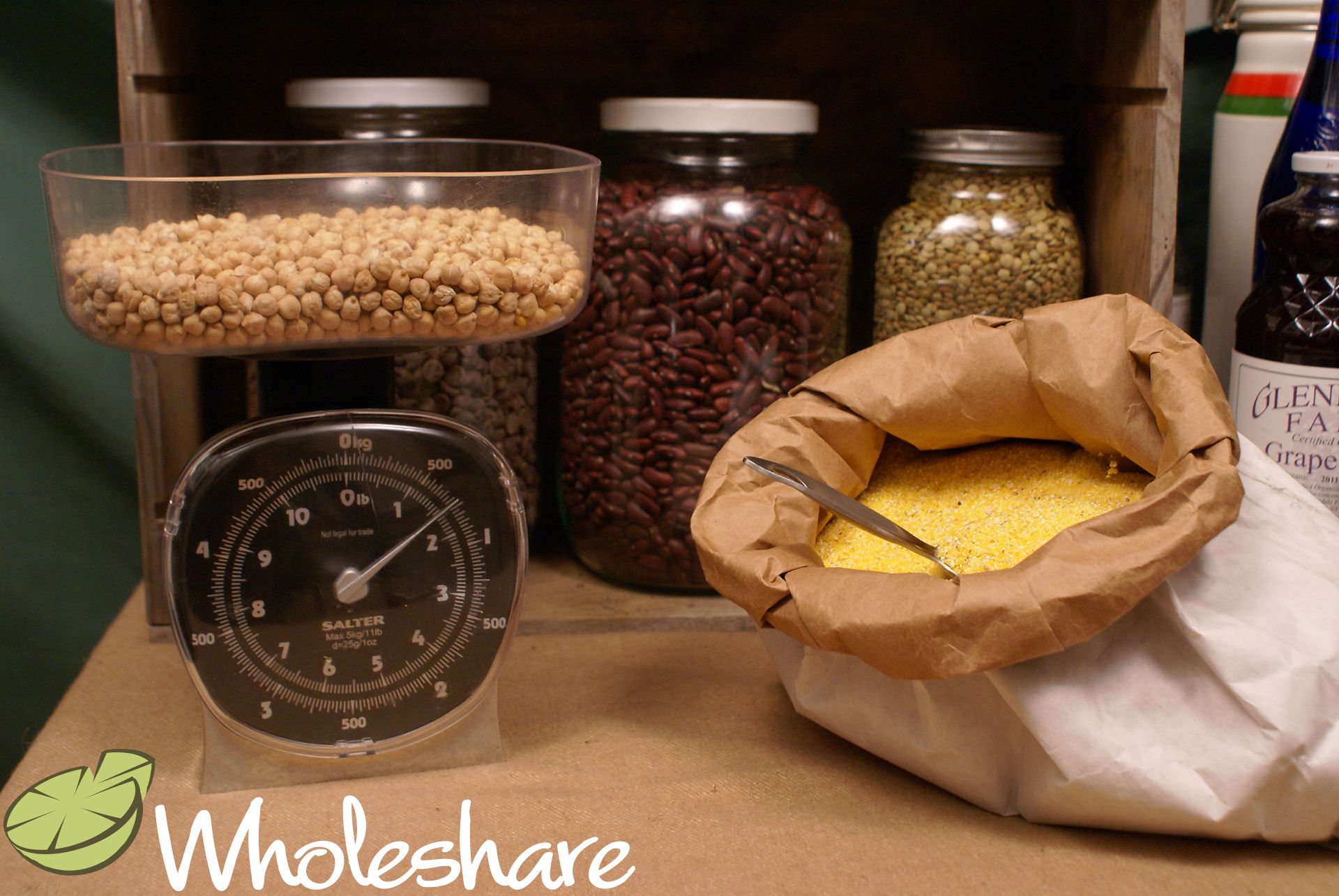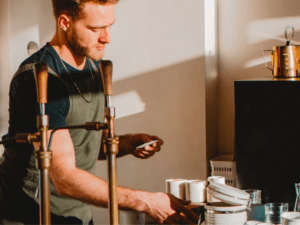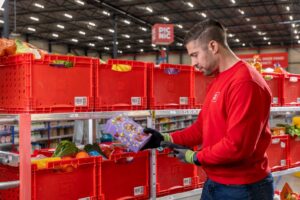Wholeshare, an online platform designed to help local communities buy their favorite natural food products at wholesale prices, has surprised its investors with the news that a larger demographic than expected is demanding sustainable, organic food.
The company, which is in the middle of a 12-month national expansion plan, raised seed funding from big name VC Andreessen Horowitz alongside SV Angel in 2014, and global startup accelerator 500 Startups topped off the $1.8 million funding in February 2015. According to Wholeshare, its investors have dubbed the company the “Whole Foods for the 99%.”
“A lot of people don’t have access to the food they want,” Matthew Hatoun, CEO and founder tells AgFunderNews. Hatoun, a computer programmer by trade, founded Wholeshare in 2012 along with two other colleagues. The trio knew they wanted to innovate in the food space, and it wasn’t long before they identified a problem they could solve.
“We are seeing people from all different demographics interested in eating healthier and learning more about where their food comes from. When we started, there was this belief many years ago that for some reason only people at the top end of the socioeconomic scale were interested in sustainable organic food,” explains Hatoun. “When we pitched Wholeshare and told investors that we want to bring sustainable organic food to everyone, including the middle and working classes, investors asked, ‘Do those people even want that kind of food?’”
Based on what Hatoun has seen through Wholeshare, the answer is yes. Lower and middle-class consumers, however, lack physical or financial access to these products — sometimes both, says Hatoun. “It’s becoming more and more obvious that people in all demographics are interested in eating healthily.”
Major natural food stores like Whole Foods and even some regional retailers often face high infrastructure and overhead costs, like food spoilage, electricity, rent, and so on. To maintain sufficient profit margins, the stores often target big cities or wealthy suburbs. Hatoun estimates that roughly 80 percent of the population lacks access to the healthy foods that these major chains and independent retailers have to offer.
“We are trying to replace that heavy infrastructure of a natural food store with a network of small, lightweight, real-time drop-off points for food,” says Hatoun. Even for consumers who live in cities with health food stores, the retailers’ pricey markup can make the food off limits, with Whole Foods frequently finding itself in the crosshairs over its markups.
Wholesale vendors often impose minimum buying requirements in the hundreds of dollars, making it difficult for consumers to take advantage of lower purchase prices. Although buying clubs and food co-ops provide consumer groups with some access to wholesale products, the logistics of organizing, facilitating, and executing them, pose big disincentives.
“One of our founders, Miriam, was part of a buying club, and we thought it was a great model — shortening the supply chain, improving access to food, and allowing consumers to take an active role in the supply chain,” says Hatoun. The computer programmers tasked themselves with taking the headaches out of the wholesale buying process. “We can solve this program from the consumer point of view; we are programmers. We can lower the barrier of entry to buying clubs and make it easier for people to get involved.”
The founders built the website from the ground up, finding standard solutions a poor fit for the platform’s needs. The platform allows members of a Wholeshare buying group to make orders online, which are then aggregated and delivered to wholesalers as a single order and payment.
Originally targeting the Northeast, Wholeshare now offers over 20,000 products at wholesale prices to its users. And while the national platform is currently limited to shelf-stable goods, it’s Northeast territory has since branched into perishable goods like meat, produce, and dairy sourced from local farms.
“Our ultimate goal is to get people access to fresh food. We’re already doing that in the Northeast,” says Hatoun. This thesis is also part of Wholeshare’s business plan. “To ensure that people keep coming back to the website, we have to have a full selection of products that are available at the grocery store. Farm-to-consumer is good, but it gets tough when people have to access multiple different platforms or stores to do their shopping.”
With the first six months of its national launch in the books, Wholeshare is gearing up to raise a third tranche of capital for its seed round. “We have room to raise up to $600,000, but we are probably aiming for another $450,000.” The funds will likely be used to help the company overcome some of the hurdles to continued expansion.
Wholeshare relies on local coordinators to get community members on board and coordinate regular food drop-offs, who receive a 5 percent commission for their work.
“Our growth is constrained by the community outreach: our employees who work with the coordinators to help them grow their group. We don’t have enough people on staff to cover all the leads that coordinators are getting and we need to hire more people to work with coordinators and grow each group,” says Hatoun.
As a result of its unique platform, Wholeshare is uniquely positioned between wholesalers and consumers, giving it unique insight into trends and changing consumer preferences on both sides of the food production system. Hatoun sees gluten-free foods as perhaps the fastest growing category in the natural food segment, with chia seeds and pressed juices following closely behind. Plant-based proteins have also become popular.
As Wholeshare gears up for its third seed round raise and continues its national market expansion, Hatoun and his fellow founders are keeping their eyes on the long game. Eventually, the company would like to add social and community-focused elements to the platform. Not only is the company uniquely situated to track and observe consumer spending patterns, but it can also help community members share their favorite products and recommendations with one another. Hatoun has envisioned adding features that allow members of a group to “follow” one another’s shopping baskets, or provide a report to each group identifying the most popular products within the community.
For now, Hatoun is pleased with the company’s fast-paced growth. “More and more people are buying food online, which is great for us because we think of the online sale of food as the last frontier of e-commerce,” explains Hatoun. “Right now, only two to three percent of e-commerce sales are food. That’s low compared to categories like books, movies, and apparel.”
Have news or tips? Email [email protected]





